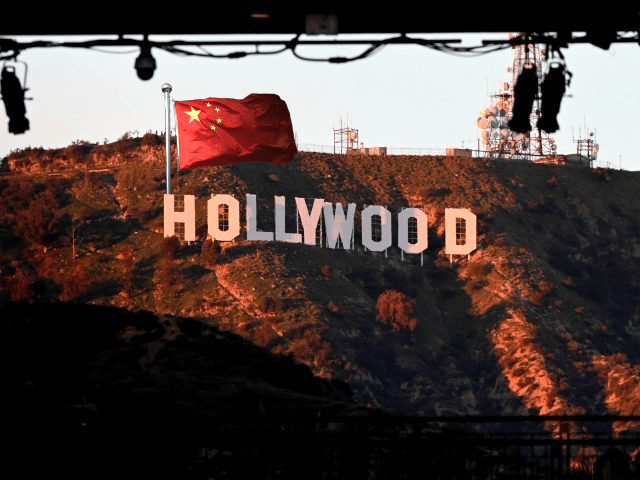The year 2020 was the year China surpassed the United States as the largest cinema market in the world – thanks, of course, to the Wuhan coronavirus.
In 2019, American box office receipts were worth about $11.4 billion in total, compared to about $9.2 billion for China. In 2020, the American box office gross was down 80 percent thanks to the pandemic, weighing in at just $2.7 billion, while Chinese ticket sales reached $3.06 billion.
The highest-grossing film worldwide in 2020 was not a Hollywood production but a Chinese film, The Eight Hundred — a splashy blockbuster war film about Chinese troops defending Shanghai from Imperial Japan in 1937 that was supposed to come out in 2019, but was delayed when the Communist Party belatedly realized the 800 heroes of the film were the wrong sort of Chinese.
Watch below:
The Number Two worldwide spot might belong to a Chinese film as well, since ticket sales for My People, My Homeland are very close to the top-grossing American movie of the year, Bad Boys for Life. Some analysts think Bad Boys for Life belongs in the Number Three spot.
Watch below:
As 2020 drew to a close, American theaters generally remained shuttered completely or could sell only a handful of tickets. Major movie releases from the latter half of the year were delayed until 2021 and beyond. Some movies abandoned theatrical release plans entirely and went directly to pay-per-view or even regular subscription streaming, notably including the entire slate of movies from Warner Bros. for the coming year. Warner Bros. accounted for $1.6 billion in U.S. ticket sales in 2019, so that’s a lot of revenue vanishing from movie theaters to become HBO Max subscription content.
The Chinese box office was already threatening to overtake the American market in 2019. American grosses slipped a bit from 2018, while China’s were up 5.4 percent. American films also did notably worse in China in 2019 than usual.
Looking back at Hollywood trade papers from the beginning of 2020 is a melancholy affair. For example, Deadline rejected predictions of doom for the theatrical experience due to the rising popularity of streaming services.
“There’s no way one can say theatrical is dead. Even though Disney is boss, and continues to prove that its branded IP is the bread and butter of the entire theatrical business, no, theatrical isn’t in the hospital,” the December 30, 2019, article declared, using a turn of phrase that would become rather unfortunate in retrospect.
And 2019 year-in-review articles tended to argue that Disney sucked down an abnormally large percentage of the box-office oxygen in 2019 with its dominant Star Wars and Marvel superhero franchises, but since those moneymakers would be largely absent from screens in 2020, other studios would have a chance to launch profitable franchises of their own. Streaming was cutting into the middle range of box-office fare, and prestige TV was stiff competition for the sort of movie that generally lacks explosions, gunfire, spaceships, or people who can fly, but audiences would surely flock back into cinemas in the spring, summer, and holiday season of 2020 for big spectacles that are best enjoyed on huge screens with crowds of excited fans.
As we all know, the pandemic scuttled those plans, utterly devastating the American box office and turning movie theaters into haunted houses. The summer blockbuster season is usually good for over $4 billion in revenue, but this year it brought only $176.5 million, and a good deal of that was from suddenly resurgent drive-in theaters showing older films.
Only one hotly-anticipated blockbuster made it to screens, Christopher Nolan’s elaborate sci-fi action film Tenet, and while it certainly made some money, it came in well below expectations.
Nolan said he was happy with Tenet’s performance and argued that it was a mistake for studios to view its diminished receipts, and its failure to single-handedly rescue movie theaters, as an epitaph for cinema:
Warner Bros. released Tenet, and I’m thrilled that it has made almost $350 million. But I am worried that the studios are drawing the wrong conclusions from our release – that rather than looking at where the film has worked well and how that can provide them with much needed revenue, they’re looking at where it hasn’t lived up to pre-COVID expectations and will start using that as an excuse to make exhibition take all the losses from the pandemic instead of getting in the game and adapting – or rebuilding our business, in other words. Long term, moviegoing is a part of life, like restaurants and everything else. But right now, everybody has to adapt to a new reality.
But that is exactly the conclusion studio executives drew from the soft underwhelming performance of Tenet. It was supposed to be the next Inception, and Inception made $837 million in the United States.
Part of the problem for American cinema is that the entertainment industry was absolutely determined to portray going to the movies as dangerous and irresponsible, even though not a single coronavirus outbreak has been traced to a movie theater, anywhere in the world.
Entertainment industry writers constantly send the message to print and online readers that they should not even think about going to the movies. Critics make a point of beginning their reviews by noting that they were sent copies of the film to watch at home. The disconnect between the actual safety record of movie theaters during the pandemic and the way they are described in the press, is remarkable.
It could be some time before audiences taught to think of cinemas as bubbling petri dishes of coronavirus doom are willing to venture back, especially since so many alternatives have been presented to them, and there was already a good deal of grumbling about the soaring cost and declining quality of the cinema experience before the Chinese coronavirus came along.
China’s box office recovered from the pandemic quickly and was back to pre-coronavirus levels by October. Ticket sales surged by 70 percent going into the final weeks of the year, driven almost entirely by Chinese productions; the few major American films released in Chinese theaters fared poorly.
The arrival of some big releases delayed for a few months by the pandemic helped to push Chinese ticket sales up for the winter season. China is also making a very big production out of defeating the coronavirus and resuming normal life in every respect, so theater patrons are getting the exact opposite of the fearful message blasted to their American counterparts.
Most of the other big foreign markets for Hollywood films are suffering from the pandemic, so China’s resurgent box office will be very appealing to studios desperate for revenue. Expect Hollywood to do whatever it takes to gain access to the market, and expect the Chinese Communist Party (CCP) to take full political advantage of their eagerness. American films are already written and edited to avoid irking CCP censors. The big studios will be even more eager to please in the year to come, while American movie theaters totter on the edge of ruin.



COMMENTS
Please let us know if you're having issues with commenting.